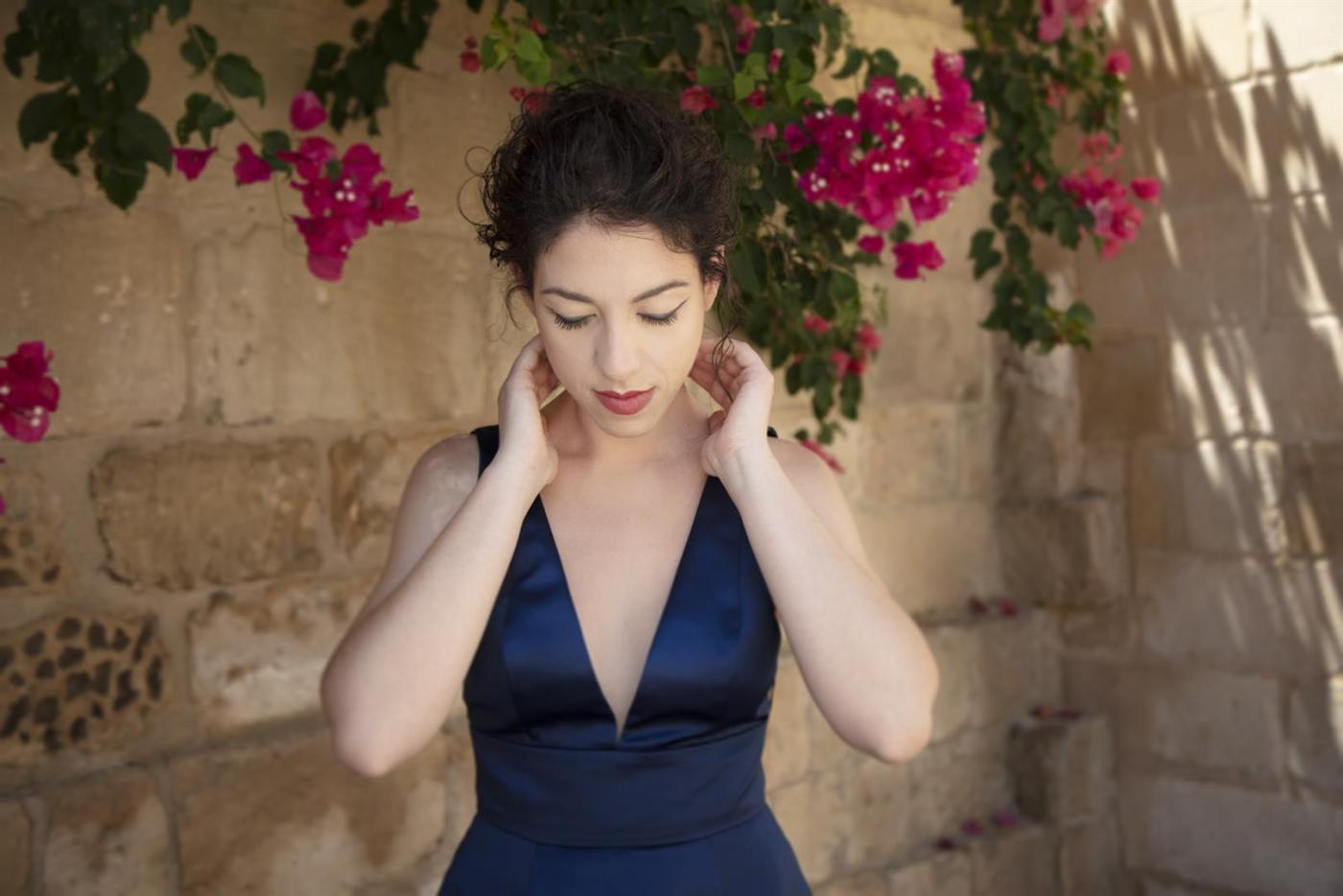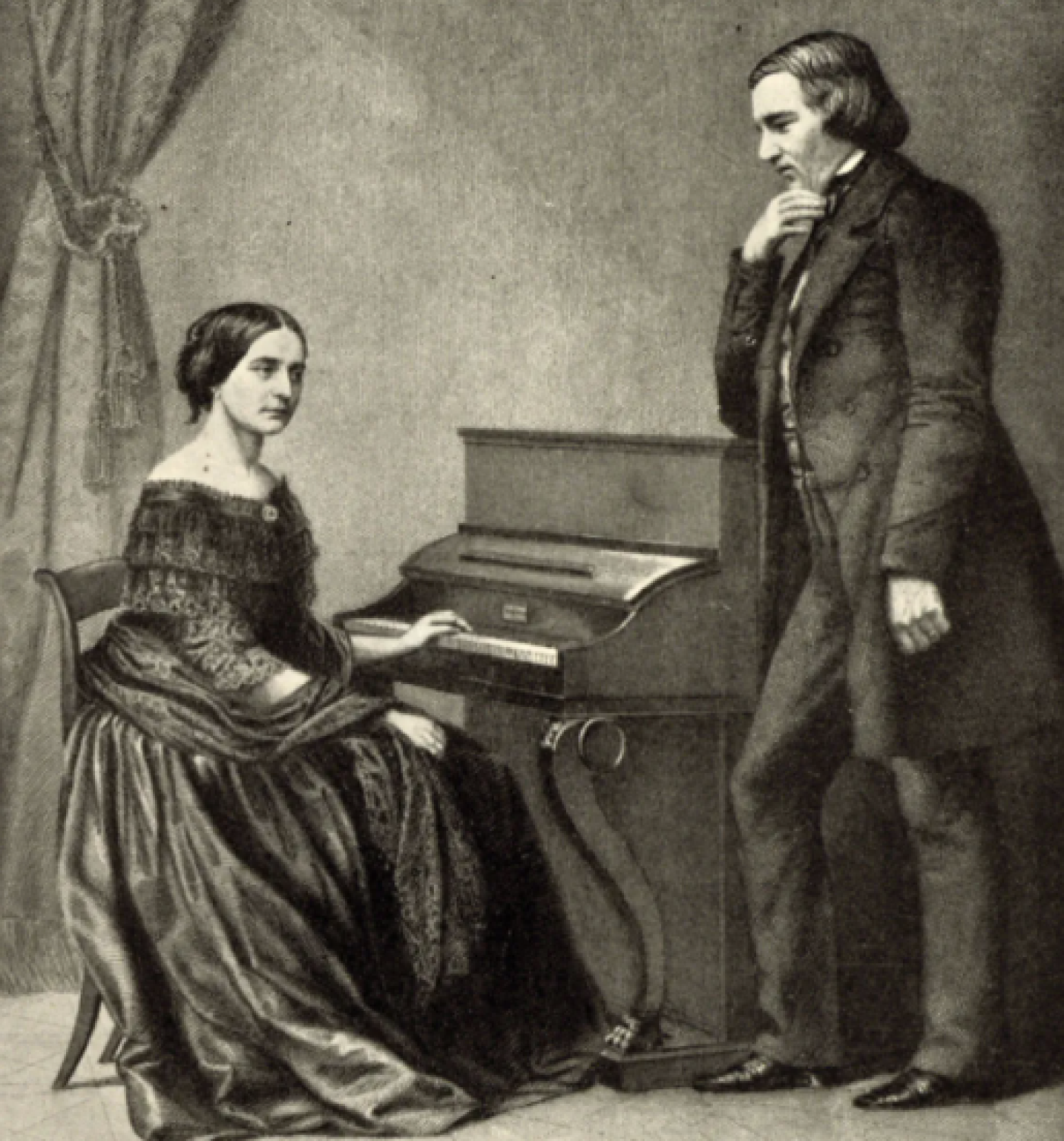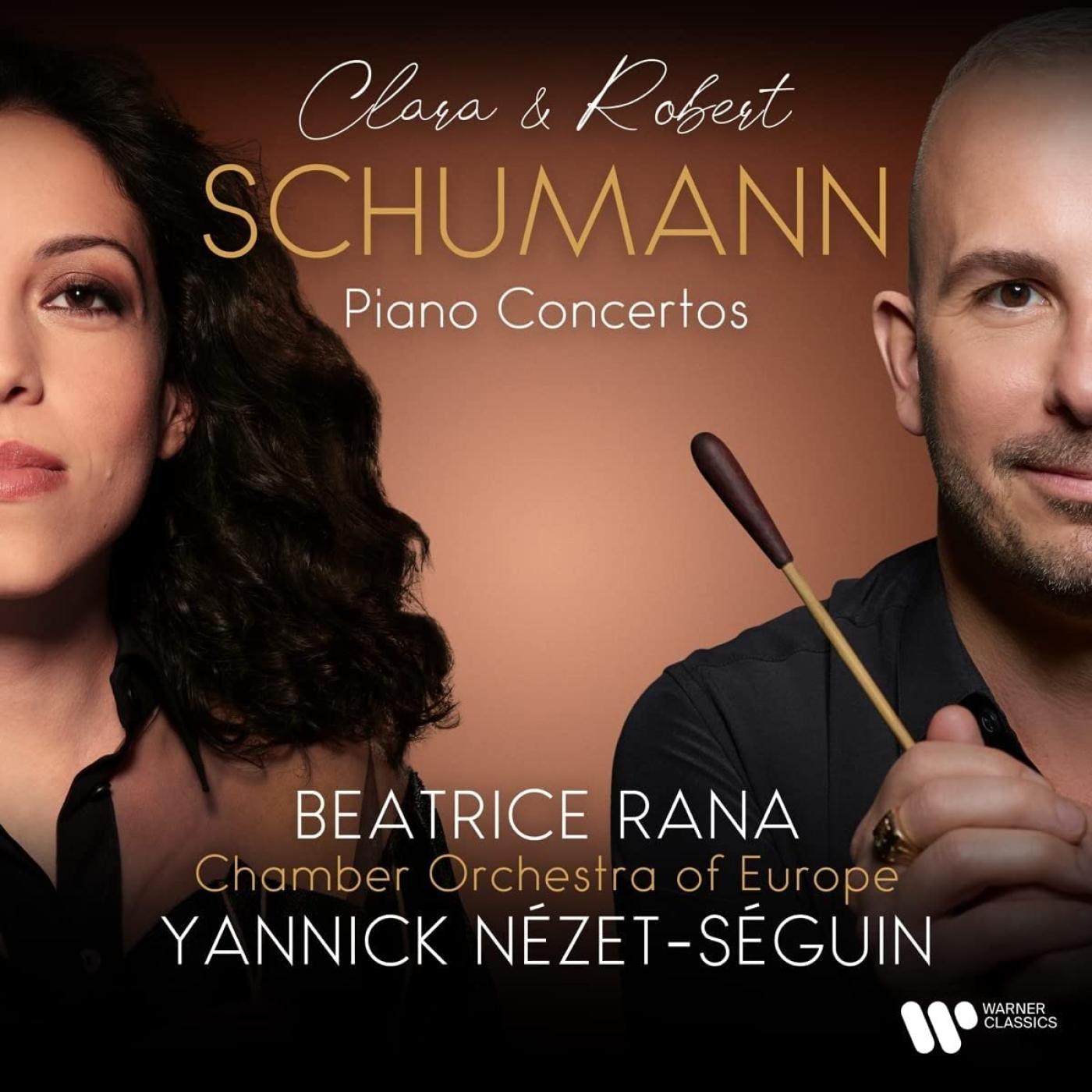Italian pianist Beatrice Rana will join conductor James Gaffigan and the National Symphony Orchestra February 2 and 4 for a performance of Robert Schumann’s Piano Concerto. The concerts bookend the release of her newest CD on February 3, featuring the Piano Concertos of Clara and Robert Schumann. Be listening to WETA Classical throughout the day on February 2 and 3rd for previews of the album.
Below, Ms. Rana talks about the concept of the CD, what a gift it was to record it following the horrors of the pandemic lockdown, and how the spirit of Clara Schumann lives on in her old home.
Beatrice Rana: I always loved [the Robert Schumann Concerto] because of the poetry that is really every note. The dialogues between the piano and the orchestra - they create so many beautiful moments that have no comparison with other concerti. About Clara, it was a more recent discovery. I always saw her as a pianist and as the muse and inspirer of Robert Schumann. I received an invitation to perform Clara Schumann‘s concerto a couple of years ago and I immediately realised how beautiful it would be to record it together with Robert’s.
NL: A love story just in time for Valentine’s Day, this recording delves into the relationship between Clara and Robert Schumann. Clara Wieck began working on her Piano Concerto when she was just 13. At first it was just a single one-movement piece. One of her father’s students, Robert Schumann, helped her a bit with the orchestration. Then she added 2 movements, using the original concert piece as a finale. She UNDID Robert’s suggestions and orchestrated the work herself. She finished it just before her 16th birthday and Mendelssohn conducted the premiere.
Do you find Clara’s Concerto fulfilling to play?
BR: It’s definitely fulfilling to play because the approach to the composition is one of a *great* virtuoso writing a concerto for herself as a pianist. It’s very similar to the approach that Chopin or Liszt had writing their concerti--very similar to the first piano concerto by Frederick Chopin. Of course it’s a youthful piece, but it still reflects quite a big ambition of Clara as a composer. It’s surely an innovation to write a concerto whose movements are without any interruption – so the first second and third movements are one after another as one big piece. They have the same things that become different in different movements. And also what is incredible in this concerto is that she decides to quit the symphonic dimension in the second movement, therefore the orchestra is just silent and there is a beautiful solo of the first cello with the piano. From a full orchestra work, it becomes a chamber music work of the most intimate dimension and I think this is quite different because no one did something like this before her.
NL: You’ve said that Clara Schumann made your career as a professional touring pianist possible.
BR: Even nowadays, it’s quite difficult to imagine someone having such a career with so many kids at home and becoming a widow. But something is impossible until someone does it. To see someone who does it in such a successful way and to be really considered one of the most amazing virtuosos of the time… it was a model for all pianists and female pianists coming after her.
NL: One of the featured pieces on the album is Franz Liszt’s transcription of Robert Schumann’s Widmung or “dedication,” a wedding present to Clara, set to a poem by Friedrich Rückert. What can you tell us about this musical love letter?
BR: I thought it was a nice idea to finish with a piece that would unite the two of them [Clara and Robert] in one piece. The lyrics are some of the most beautiful love lines that I have ever read and the music follows in exactly the same way. For me, it was a nice way to pay homage to this amazing couple. I think the sense of their relationship is beautifully summarized in this work. The lyrics finish with this sentence: “you make me my better self.” Each one was inspiring the other and encouraging the other to do better and this is the highest goal in a love relationship.
NL: Robert Schumann’s Piano Concerto also began life as a single-movement Fantasy and became a Piano Concerto thanks to Clara’s encouragement. The first movement highlights the struggle between two aspects of Schumann’s personality...the extroverted Florestan and the introverted Eusebius. There are also little musical love notes to Clara, plus, she was the soloist at the premiere.
Tell us how you approach playing this concerto. Besides practicing and playing, what will you do while in DC?
BR: I think I’ll sleep because of the jetlag! For sure I'll try to take a walk - I was in Washington DC many years ago for such a short time so I want to explore the city a little bit.
I’m very, very excited that I’m playing the Schumann concerto on the same week of the release of the CD--in a way it’s a celebration for this release. I’ve always loved to play the Robert Schumann with an orchestra. Every note is at the service of music. Even in the most virtuosic passages it’s never for the sake of showing off. It’s a freedom that belongs to chamber music works. So that’s why I was very happy to record it with the Chamber Orchestra of Europe because they have this incredible capacity for listening to each other. It was really a privilege to record with them and also with Yannick Nézet-Séguin who is one of the most incredible conductors that I’ve ever worked with. To make music with him was so powerful and delicate and sensitive at the same time… It was some of the most memorable days of music making for me.
NL: You recorded this album live during the summer festival 2022 in Baden-Baden, the city where Clara Schumann bought a “cottage” some years after Robert’s death...a happy place where she and her kids and friends would get together during summer vacations. Did you feel Clara’s spirit there?
BR: Absolutely. Also, after the first concert – the first concert was with Clara’s Concerto – there was a man that came backstage and he started to talk to me and said, “you know, when I was young, I had a neighbor that was an old lady and this old lady was a very passionate music lover. She said that she had another neighbor who was playing on the piano all the time…” It came up that this neighbor that was playing all the time on the piano was Clara and yeah I was really astonished when I heard this story because I had such a direct contact with her… I was quite speechless!
NL: Thanks so much for talking to us. We’re so looking forward to the CD and your NSO concert.
BR: The CD has a particular meaning because of the repertoire choice, because of the people I recorded with and also because of what came before this recording --that was the pandemic. I mean everything was looking so black… and then to have a chance to record such a CD was a gift, really.
I’m incredibly looking forward to the concert. I’m so happy!
Beatrice Rana plays Robert Schumann’s Piano Concerto with the NSO February 2 and 4 at the Kennedy Center Concert Hall. James Gaffigan also conducts Dvorak’s Seventh Symphony. Tickets and information at Nationalsymphony.org.
PBS PASSPORT
Stream tens of thousands of hours of your PBS and local favorites with WETA+ and PBS Passport whenever and wherever you want. Catch up on a single episode or binge-watch full seasons before they air on TV.


